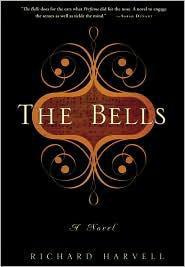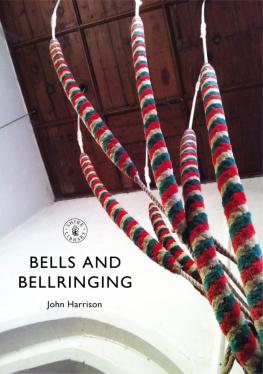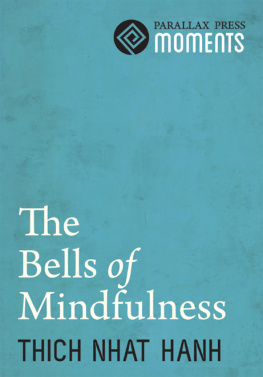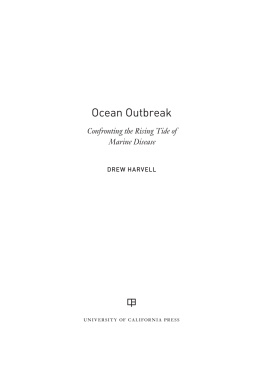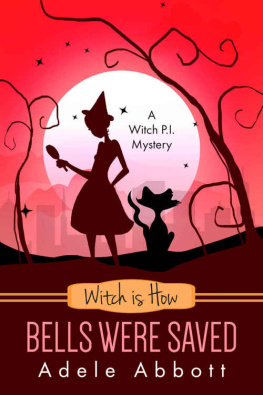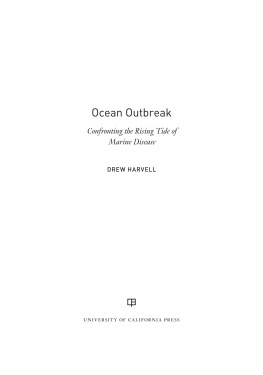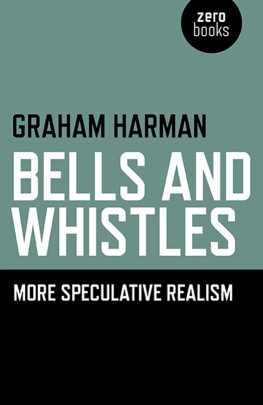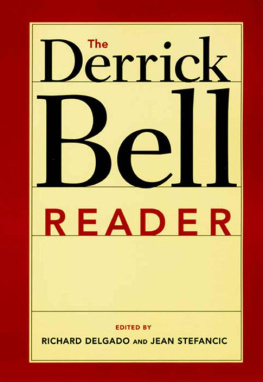Richard Harvell - The Bells
Here you can read online Richard Harvell - The Bells full text of the book (entire story) in english for free. Download pdf and epub, get meaning, cover and reviews about this ebook. year: 2010, publisher: Crown, genre: Art. Description of the work, (preface) as well as reviews are available. Best literature library LitArk.com created for fans of good reading and offers a wide selection of genres:
Romance novel
Science fiction
Adventure
Detective
Science
History
Home and family
Prose
Art
Politics
Computer
Non-fiction
Religion
Business
Children
Humor
Choose a favorite category and find really read worthwhile books. Enjoy immersion in the world of imagination, feel the emotions of the characters or learn something new for yourself, make an fascinating discovery.
- Book:The Bells
- Author:
- Publisher:Crown
- Genre:
- Year:2010
- Rating:5 / 5
- Favourites:Add to favourites
- Your mark:
- 100
- 1
- 2
- 3
- 4
- 5
The Bells: summary, description and annotation
We offer to read an annotation, description, summary or preface (depends on what the author of the book "The Bells" wrote himself). If you haven't found the necessary information about the book — write in the comments, we will try to find it.
The Bells — read online for free the complete book (whole text) full work
Below is the text of the book, divided by pages. System saving the place of the last page read, allows you to conveniently read the book "The Bells" online for free, without having to search again every time where you left off. Put a bookmark, and you can go to the page where you finished reading at any time.
Font size:
Interval:
Bookmark:
I am very grateful to Alexandra Mendez-Diez for her many hours of reading and commenting, all done six time zones and an ocean away. I am indebted to Bridget Thomas for her many invaluable improvements to language and style. Thank you to the writers at Thin Raft, Basel, for their years of encouragement.
To Dan Lazar at Writers House, thank you for giving the novel new life, and for making it so much better. Thanks also to Stephen Barr for his great insights. In Sarah Knight, I found a fantastic editor whose limitless enthusiasm kept me going. I am grateful to Shaye Areheart, Kira Walton, Karin Schulze, Linda Kaplan, Annsley Rosner, Sarah Breivogel, Heather Lazare, Patty Berg, Katie Wainwright, Rachel Berkowitz, Jill Flaxman, and Christine Kopprasch for their hard work and support. Thank you to Domenico Sposato and my other colleagues at the Minerva Schulen Basel, and to Franz Gstttner, Ernst Zchling, and the Dombauhtte St. Stephan.
Mom and Dad, of course I couldnt even have begun without your support and guidance. To Rebecca and Sam, thank you for all your love. And last, of course, an ocean of thanks to Dominiquewithout you there would be no book.
R eal sounds inspired me first: my wife singing an aria from Glucks Orfeo; a harsh, metallic peal from the belfry of an undersize Alpine church; the chatter of Swiss cowbells; a recording of medieval chants penned at the Abbey of St. Gall. With the research that followed, I set about establishing an accurate historical setting in which to set loose my fictional characters.
The Abbey of St. Gall was dissolved, under Napoleons influence, in 1805, making Abbot Coelestin Gugger von Staudach (17011767) the third to final abbot. Abbot Coelestin oversaw the stunning baroque renovations of his millennium-old abbey, including construction of the Church of St. Gall, now a UNESCO World Heritage Site.
For Viennas eighteenth-century geography, I relied on Joseph Daniel von Hubers Vogeschauplan der Wiener Innenstadt (1785). Spittelbergs decrepit taverns of ill renown were largely demolished in the early nineteenth century, but what I imagined to be Nicolai and Remuss house on the Burggasse still stands to this day, and the ground floor is indeed a charming coffeehouse. The Riecher Palace is based on the Frst von Clris Palace; Guadagnis house, on a more modest structure near the Scottish Gateneither exists today. Many of Glucks, Mozarts, and Beethovens operas were premiered in the Burgtheater before it was demolished in 1888. Details of the theater mechanics and Tassos substage are based upon the exquisitely restored baroque theater at esk Krumlov.
Orfeo ed Euridice premiered on October 5, 1762, and the events leading up to it, including the preview performance on August 6, 1762 (which took place at Calzabigis house rather than at Guadagnis), are recorded in Count Karl Zinzendorfs meticulously kept diaries. There exist only two, very spare reviews of the premiere, in the two issues of the Wienerisches Diarium that were published following the performance, dated October 6 and 13. Neither review even mentions the performers names. I drew Mosess listing of nobles attending the premiere from the Burgtheaters subscription records.
Gluck himself left Vienna for Paris in 1774, and there he rewrote his Orfeo, changing the hero from a castrato mezzo-soprano to a tenor voice. Gaetano Guadagni returned to London in 1769, but there he failed to live up to his reputation and, out of favor, left again two years later. He retired to Padua, where he was known for singing solo puppet performances of Glucks Orfeo. He died penniless in 1792, having given away his fortune to his many students.
The Pummerin was cast in 1705 from 208 Turkish cannons and survived until 1944, when it was destroyed in a fire set by wartime looters. It was melted, recast, and rehung in 1957. It rings every year to celebrate the New Year. Austrians watch the swinging bell on national television.
Sometime around 1750, Count Karl Eugen brought two Italian physicians to Stuttgart for the purpose of castrating young boys, and so the dukes court is the only known location of systematic castration north of the Alps. In Italy, boys continued to be castrated for Europes opera houses throughout the nineteenth century, though the golden age of the musico passed with romantic operas rising preference for the tenor voice. The last musico, Alessandro Moreschi, sang in the Papal Choir until 1913.
In a very few places, when my story and history conflicted, the story won out. Most egregious, Staudachs church was finished only in 1766, too late to castrate Moses in time for Glucks opera. Moving construction back a few years seemed a small crime, well worth the opportunity to pair the beautiful building with Glucks stunning opera, both of which, more than two hundred years later, are enduring symbols of an age.
F irst, there were the bells. Three of them, cast from warped shovels, rakes, and hoes, cracked cauldrons, dulled ploughshares, one rusted stove, and, melted into each, a single golden coin. They were rough and black except along their silvery lips, where my mothers mallets had struck a million strokes. She was small enough to dance beneath them in the belfry. When she swung, her feet leapt from the polished wooden planks, so that when the mallet met the bell, it rang from the bells crown to the tips of my mothers pointed toes.
They were the Loudest Bells on Earth, all the Urners said, and though now I know a louder one, their place high above the Uri Valley made them very loud indeed. The peal could be heard from the waters of Lake Lucerne to the snows of the Gotthard Pass. The ringing greeted traders come from Italy. Columns of Swiss soldiers pressed their palms against their ears as they marched the Uri Road. When the bells began to sound, teams of oxen refused to move. Even the fattest men lost the urge to eat, from the quivering of their bowels. The cows that grazed the nearby pastures were all long since deaf. Even the youngest herders had the dull ears of old men, though they hid in their huts morning, noon, and night when my mother rang her bells.
I was born in that belfry, above the tiny church. There I was nursed. When it was warm enough, there we slept. Whenever my mother did not swing her mallets, we huddled beneath the bells, the four walls of the belfry open to the world. She sheltered me from the wind and stroked my brow. Though she never spoke a word to me, nor I to her, she watched my mouth as I babbled infant sounds. She tickled me so I would laugh. When I learned to crawl, she held my foot so I did not creep off the edge and fall to my death on the jutting rocks below. She helped me stand. I held a finger in each fist, and she led me round and round, past each edge a hundred times a day. In terms of space, our belfry was a tiny worldmost would have thought it a prison for a child. But in terms of sound, it was the most massive home on earth. For every sound ever made was trapped in the metal of those bells, and the instant my mother struck them, she released their beauty to the world. So many ears heard the thunderous pealing echo through the mountains. They hated it; or were inspired by its might; or were entranced until they stared blindly into space; or cried as the vibrations shook their sadness out. But they did not find it beautiful. They could not. The beauty of the pealing was reserved for my mother, and for me, alone.
I wish that were the beginning: my mother and those bells, the Eve and Adam of my voice, my joys, and my sorrows. But of course that is not true. I have a father; my mother had one as well. And the bells, too; they had a father. Theirs was Richard Kilchmar, who, one night in 1725, tottered on a table, so drunk he saw two moons instead of one.
Font size:
Interval:
Bookmark:
Similar books «The Bells»
Look at similar books to The Bells. We have selected literature similar in name and meaning in the hope of providing readers with more options to find new, interesting, not yet read works.
Discussion, reviews of the book The Bells and just readers' own opinions. Leave your comments, write what you think about the work, its meaning or the main characters. Specify what exactly you liked and what you didn't like, and why you think so.

